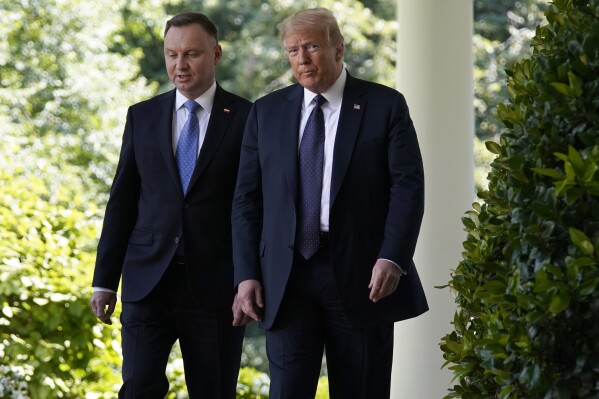Pentagon leaders press Congress for Ukraine funding, saying battlefield situation is dire
WASHINGTON (AP) — Ukraine and Israel both desperately need the military weapons that are being held up by Congress’ failure to pass a funding package for the two countries at war, Pentagon leaders told House appropriators Wednesday, calling the situation in Ukraine dire.
“Whether it’s munitions, whether it’s vehicles, whether it’s platforms,” Ukraine is being outmatched by the Russians, Gen. CQ Brown, chairman of the Joint Chiefs of Staff, told the House Defense Appropriations Subcommittee. “I’ll just tell you that Ukraine right now is facing some dire battlefield conditions.”
Defense Secretary Lloyd Austin, seated alongside Brown, told lawmakers that time matters.
“We’re already seeing things on the battlefield begin to shift a bit in Russia’s favor. We are seeing them make incremental gains. We’re seeing the Ukrainians be challenged in terms of holding the line,” he said.
Their grim assessments came as House Republicans wrangle over the $95 billion foreign aid bill that the Senate passed in February. That legislation provides funding for Ukraine, Israel and other allies, as well as humanitarian aid for civilians in Gaza and Ukraine and replenishment cash for the U.S. military to replace weapons sent to Ukraine.



House Speaker Mike Johnson was forging ahead Wednesday toward votes later this week on the funding, even as he risks losing his leadership post in the bitterly divided Republican caucus.
Members of the House panel lamented the gridlock that has stalled the foreign aid, but several said they are hopeful the legislation will begin to move.
Rep. Betty McCollum, D-Minn., noted the “chilling” comments by Gen. Christopher Cavoli, the top U.S. military commander for Europe last week. He told the committee that Ukraine will be outgunned 10 to one by Russia within a matter of weeks if Congress doesn’t approve the funding.
“Without the United States assistance, Ukraine will literally run out of ammunition and more civilians in Ukraine will be murdered by Russia,” McCollum said.
Brown told lawmakers that Israel also critically needs support in the bill, including air defense interceptors and munitions to defend itself following Iran’s attack over the weekend. Iran launched about 300 missiles and drones toward Israel on Saturday, but the vast majority were shot down by Israeli defenses or U.S. and other allies. The attack came less than two weeks after a suspected Israeli strike in Syria killed two Iranian generals in an Iranian consular building.
Israel has vowed to retaliate as the U.S. and other allies urge restraint.
The funding issue dominated the hearing, including its impact on the U.S. military and defense companies scattered across 30 states. The Pentagon’s comptroller, Michael McCord, said the Defense Department has already spent about $2 billion for military operations in Europe and the Middle East to ensure troops and allies there are secure.
Some of that includes the movement of Navy ships to help protect Israel over the weekend and the extended deployment of ships in the Red Sea and Gulf of Aden to safeguard commercial and military vessels being targeted by Iran-backed Houthis in Yemen.
Without the supplemental funding, McCord said the $2 billion would have to be absorbed by the base budget and shifted from other spending on things like facilities and equipment maintenance.
“So there is an impact on our forces and our readiness as well if we cannot get the supplemental approved,” he said.
Austin also repeated a selling point that defense leaders have been making to lawmakers over the past several months: The funding bill will directly help the American defense industry that is building Abrams tanks, ammunition and other weapons and equipment.
He said about $50 billion in the supplemental will flow through the defense industrial base “creating good American jobs in more than 30 states.”
Disclaimer: The copyright of this article belongs to the original author. Reposting this article is solely for the purpose of information dissemination and does not constitute any investment advice. If there is any infringement, please contact us immediately. We will make corrections or deletions as necessary. Thank you.






